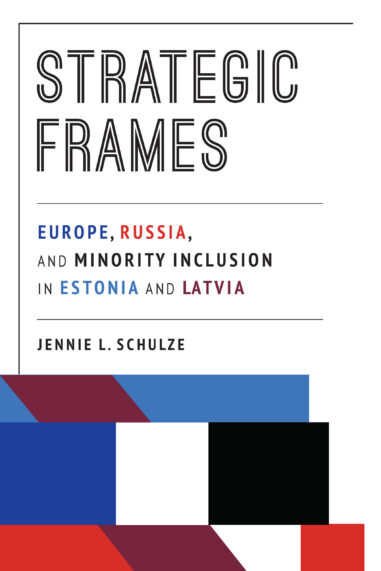Strategic Frames analyzes minority policies in Estonia and Latvia following their independence from the Soviet Union. It weighs the powerful influence of both Europe and Russia on their policy choices, and how this intersected with the costs and benefits of policy changes for the politicians in each state.
Prior to EU accession, policymakers were slow to adopt minority-friendly policies for ethnic Russians despite mandates from the European Union. These initiatives faced majority opposition, and politicians sought to maintain the status quo and their positions. As Jennie L. Schulze reveals, despite the credit given to the democratizing influence of European institutions, they have rarely produced significant policy changes alone, and then only when domestic constraints were low. Whenever domestic opposition was high, Russian frames were crucial for the passage of reforms. In these cases, Russia’s activism on behalf of Russian speakers reinforced European frames, providing powerful justifications for reform.
Schulze’s attention to both the strategic framing and counter framing of external actors explains the controversies, delays, and suboptimal outcomes surrounding the passage of “conditional” amendments in both cases, as well as the local political climate postaccession.
Strategic Frames offers a significant reference on recent developments in two former Soviet states and the rapidly evolving spheres of political influence in the postindependence era that will serve students, scholars, and policymakers alike.


